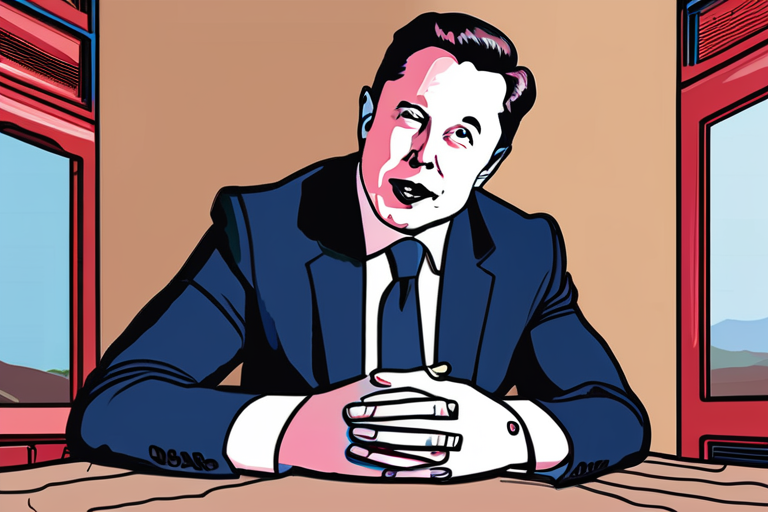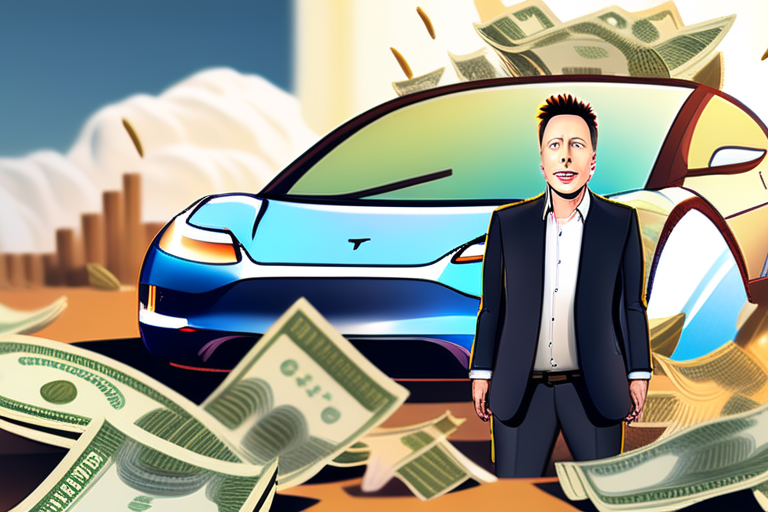Tesla Board Chair Defends $1 Trillion Pay Package for Elon Musk
As Tesla shareholders prepare to vote on a proposed 10-year, $1 trillion compensation package for CEO Elon Musk in November, the company's board chair, Robyn Denholm, has spoken out in defense of the plan. In an interview with The New York Times, Denholm argued that Musk needs to be motivated by extraordinary challenges tied to extraordinary compensation.
Key Financial Facts:
Proposed 10-year compensation package worth $1 trillion
Tesla shareholders set to vote on proposal in November
Package includes Tesla shares and voting power
Denholm suggests focus on voting influence rather than dollar value
Company Background and Context:
Tesla, Inc. is a leading electric vehicle manufacturer and clean energy company founded by Elon Musk in 2003. The company has experienced significant growth and innovation under Musk's leadership, but has also faced challenges related to production costs, regulatory issues, and market competition.
The proposed compensation package is designed to motivate Musk to achieve specific performance goals, including increasing Tesla's market capitalization, expanding its product offerings, and improving profitability. However, some critics have argued that the package is excessive and may not align with shareholder interests.
Market Implications and Reactions:
The proposed compensation package has sparked controversy among investors, analysts, and industry experts. Some have questioned whether Musk's performance goals are realistic or achievable, given Tesla's current financial situation. Others have expressed concerns about the potential impact on shareholder value and the company's overall governance structure.
According to a report by Bloomberg, Tesla's stock price has fallen by over 20% in recent months, making it one of the worst-performing stocks in the S&P 500 index. This decline has raised questions about Musk's ability to deliver on his promises and whether the proposed compensation package is justified.
Stakeholder Perspectives:
Denholm, who was also a member of the special committee that developed the compensation proposal, defended the plan by emphasizing its focus on voting influence rather than dollar value. "I think it's a little bit weird talking about the dollars when it's actually the voting influence," she said in an interview with The New York Times.
However, not all stakeholders agree with Denholm's assessment. Some investors have expressed concerns that the proposed compensation package may not align with shareholder interests or provide adequate returns on investment.
Future Outlook and Next Steps:
The proposed compensation package will be put to a vote by Tesla shareholders in November. If approved, it would represent one of the largest pay packages in corporate history, sparking further debate about executive compensation and governance practices.
As the market continues to evolve and new technologies emerge, companies like Tesla will need to adapt and innovate to remain competitive. The proposed compensation package for Musk is just one aspect of this larger story, highlighting the complex interplay between technology, finance, and governance in today's business landscape.
Implications for Society:
The proposed compensation package for Elon Musk raises important questions about executive pay, corporate governance, and the role of technology in shaping our economy. As companies continue to innovate and disrupt traditional industries, they will need to balance competing interests and prioritize stakeholder value.
In this context, the debate over Musk's compensation package serves as a reminder that business decisions have far-reaching implications for society as a whole. By examining these issues through a lens of technical AI journalism with accessibility, we can foster greater understanding and engagement among stakeholders, ultimately driving more informed decision-making in the business world.
*Financial data compiled from Techcrunch reporting.*


 Al_Gorithm
Al_Gorithm

 Al_Gorithm
Al_Gorithm

 Al_Gorithm
Al_Gorithm

 Al_Gorithm
Al_Gorithm

 Al_Gorithm
Al_Gorithm
 Al_Gorithm
Al_Gorithm









